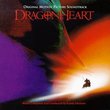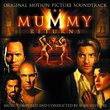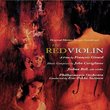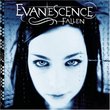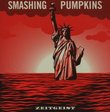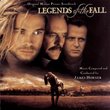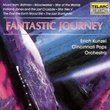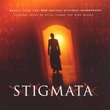| All Artists: Royal Scottish National Orchestra Title: Star Wars: Shadows Of The Empire [Enhanced CD] Members Wishing: 2 Total Copies: 0 Label: Varese Sarabande Original Release Date: 4/23/1996 Release Date: 4/23/1996 Album Type: Enhanced, Soundtrack Genres: Pop, Soundtracks Style: Number of Discs: 1 SwapaCD Credits: 1 UPCs: 030206570021, 030206570045, 4005939570026 |
Search - Royal Scottish National Orchestra :: Star Wars: Shadows Of The Empire [Enhanced CD]
![Star Wars: Shadows Of The Empire [Enhanced CD]](https://nationalbookswap.com/cd//l/69/5169/255169.jpg) | Royal Scottish National Orchestra Star Wars: Shadows Of The Empire [Enhanced CD] Genres: Pop, Soundtracks
|
Larger Image |
CD DetailsSimilarly Requested CDs
|
CD ReviewsMcNeeley's score for Shadows of the Empire is worth a listen Alex Diaz-Granados | Miami, FL United States | 08/19/2004 (4 out of 5 stars) "In 1996, even as the 20th Anniversary Special Edition of the Star Wars Trilogy was being prepped for release in early 1997 and pre-production planning for Episode I was starting, Lucasfilm gathered several authors, artists, and representatives from Hasbro and other licensees to discuss a huge multimedia project that was, in short, everything but the full-fledged filmed version of a Star Wars movie. The talented science-fiction writer Steve Perry was hired to write an original novel for Bantam Spectra that would be the core of the project called Star Wars: Shadows of the Empire. The novel would be a stand-alone Expanded Universe novel, the first of the Bantam Spectra series to depict events within the Trilogy's timespan, i.e., between The Empire Strikes Back and Return of the Jedi. All the other products, ranging from Hasbro's Kenner Star Wars action figures to Nintendo 64 cartridges, would use Perry's novel as a starting point and expand the story somewhat, sticking to the essentials of the story of the Falleen crime lord Prince Xizor's scheme to avenge his family's death after a bio-warfare experiment directed by Darth Vader results in a lab accident, forcing the Empire to sterilize part of Xizor's homeworld by Star Destroyer bombardment. Xizor plans to bring Vader down in the most painful manner -- by killing the young Jedi Knight-in-training named Luke Skywalker, the most dangerous threat to Emperor Palpatine...and Vader's son. Because Lucasfilm's directive was "Everything but the movie," one of the more interesting aspects of the Shadows of the Empire project was the commisioning of composer Joel McNeeley, who had already worked for Lucasfilm as the composer for the wonderful but short-lived "Young Indiana Jones Chronicles," a stint that earned McNeeley an Emmy for the score of "Young Indiana Jones and the Scandal of 1920." (McNeeley has also written music for many feature films, including 1994's Terminal Velocity and 1996's Flipper) McNeeley's task to compose music for a Star Wars adventure -- even if it was literary rather than cinematic -- was daunting. John Williams' scores for the existing Trilogy are masterpieces of symphonic music and are immediately recognizable. How could McNeeley compose a score of his own that would build upon Williams' material yet be able to stand on its own? McNeeley's approach was simple. Instead of following slavishly in Williams' footsteps, he'd use a few existing motifs to set the scene by borrowing Main Theme from Star Wars and grafting music from the Han-Leia farewell scene in Bespin's carbon freeze chamber (track 1, "Main Theme and Leia's Nightmare), then break away on his own as much as possible. And this he accomplished brilliantly, as listeners of this album will discover when they hear "The Battle of Gall" (track 2), "Beggar's Canyon Chase" (track 4), "Xizor's Theme" (track 6), or "The Seduction of Princess Leia" (track 7), a wonderful piece that starts out, as the title implies, with sensual undertones in a waltz-like movement with almost Max Steiner-like romantic phrasings that end abruptly with a shift to dark thematic material. Obviously, this being a Star Wars story that is set while Vader is still alive and still in the thrall of the Dark Side, McNeeley can't totally leave out existing material by Williams. In addition to the mood-setting first track, McNeeley borrows two key Star Wars motifs in track 8, "Night Skies," which features both The Imperial March (Darth Vader's Theme) and Ben's/The Force Theme in a scene set on Coruscant's Imperial City as the Dark Lord senses his son's presence somewhere in the sprawling city-planet. For the Varese Sarabande Digital recording of Star Wars: Shadows of the Empire McNeeley teamed up with the Royal Scottish National Orchestra and Chorus, an acclaimed ensemble of over 150 musicians. Acclaimed record producer Robert Townson, a fan of film scores and John Williams' Star Wars scores, helmed the project. Key Tracks: Top 5 Must-Hear Cues from Shadows of the Empire (Track Number, Cue Title) 1. Main Theme from Star Wars & Leia's Nightmare 2. The Battle of Gall 3. Imperial City 7. The Seduction of Princess Leia 10. The Destruction of Xizor's Palace " Fantastic Nathan Blumenfeld | Wilmington, DE United States | 02/09/2001 (5 out of 5 stars) "This is simply a fantastic CD. It is full of unique, memorable themes and songs, and definitely worth buying. At about an hour in length, it's also twice as long as most film soundtracks released these days. If you simply want a rehash of John Williams' music, don't look here. As Joel McNeely, the composer, says, "The significant contributions of John Williams' brilliant scores have affected nearly everyone who has experienced these films. For a composer of film music to enter into this domain is to tread on hallowed ground. Therefore, rather than tread lightly, I have wandered elsewhere." McNeely's style is unmistakeably his own, and is very good.From the subtle, ethereal Night Skies and Leia's Nightmare, to the bold Imperial City to the fast paced Beggar's Canyon Chase and wonderful Battle of Gall to the absolutely amazing, choiral, powerful Destruction of Xizor's Palace, these are ten unforgettable, extremely memorable tracks. I often find myself humming them to myself, even when I haven't listened to the CD for a while.In addition to the great music, this is an "Enhanced CD," which can be explored on your computer. Of course, it is several years old and may not work or autoplay on all systems, but it's a good look at the world of the Star Wars Expanded Universe up through 1995.This is definitely a CD worth getting. Highly Recommended." Very, very pleasing! Nathan Blumenfeld | 07/29/1999 (5 out of 5 stars) "I always liked this soundtrack. But until I heard the Phantom Menace soundtrack I felt that the choral work seemed out of place in the Star Wars universe with the exception of the Emperor's theme from Jedi. Don't get me wrong, I loved the strong vocals, they just seemed not Star Warsish. Then Williams came out with the music for the Phantom Menace and chorals now had a happy and very welcome home in the SW universe! McNeely's work is actually almost like a predecessor to TPM in a way. The music seems similar. I especially like track 10 - Destruction of Xizor's Palace with it's powerful climax and SUPERB variation of Vader's theme! I have heard his theme used as a march, fanfare, intro, close, and even played sad and soft (see Darth Vader's death on the RotJ soundtrack), but until now I had never heard it as pure battle music. A treat to be sure. A new theme found it's way into Star Wars in this soundtrack: Xizor's theme. Although the actual Williams-like theme doesn't appear until the end of the track (with the first part being more of a trip inside Xizor's mind) when it hits it is truly remarkable. It is also used throught the score after it's intro. Although McNeely mainly stays clear from thematic material, he makes exceptional use of the Force theme in track 8. It takes us back to Binary Sunset (ANH)and Light of the Force [Alternate] (RotJ). Beggar's Canyon Chase is another enjoyable and fast-paced peice. It perfectly complements a fast paced chase through the infamous Tatooine canyon (think of the pod race scene in TPM)! The Seduction of Princess Leia introduces another idea entirely new to SW - a waltz. It is a very welcome addition :) The Battle of Gall is remenicient of the Battle of Endor from RotJ in that it covers multiple scenes in one track. Although the battle itself isn't scored, the events leading up to it are. The only thing I would change about this CD is that I would give the new character Dash Rendar a more prmoinent theme. It only makes a short cameo in Beggar's Canyon Chase. It's so small that until I read the liner notes I mistook it for a heroic cresendo. In all, an enjoyable CD. If you don't like the fact that it doesn't seem like SW enough, then just enjoy it as it's own thing because this really is enjoyable listening!"
|

 Track Listings (10) - Disc #1
Track Listings (10) - Disc #1